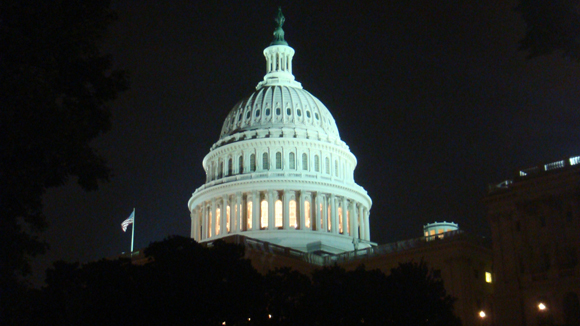Obama says President Bush authorized NSA spying after 9/11
Can the Justice Department stop the court from ruling?

Sign up for breaking news, reviews, opinion, top tech deals, and more.
You are now subscribed
Your newsletter sign-up was successful
The Obama administration has filed papers that make it clear that the National Security Agency's controversial spying activities were authorized by the Bush administration following the 9/11 terrorist attacks in 2001.
The Bush administration reportedly re-authorized the spying and data hoarding every 30 to 60 days. This marks the first time the NSA's actions have been attributed to anyone besides the NSA itself, lending the Agency's spying more legitimacy.
That seems to be the Obama Administration's hope, at least, as the same filing was meant to stop the court from ruling on whether the NSA's activities are unconstitutional.
The current administration argued that despite everything the public has learned from Edward Snowden's NSA leaks, there is still secret information that could prove a national security risk if it gets out in court.
Define 'reasonable'
The US District Court headed by Judge Jeffrey S. White is attempting to determine whether the NSA's surveillance programs violated the First and/or Fourth Amendments of the constitution.
But the Justice Department has asked White to dismiss the case out of hand, asserting its state secrets privilege.
Plaintiffs include the Electronic Freedom Foundation. They have until late January to respond.
Sign up for breaking news, reviews, opinion, top tech deals, and more.
"The government seems to be trying to reset the clock to before June 2013 or even December 2005," EFF Legal Director Cindy Cohn said in a statement.
"But the American people know that their communications are being swept up by the government under various NSA programs. The government's attempt to block true judicial review of its mass, untargeted collection of content and metada by pretending that the basic facts about how the spying affects the American people are still secret is both outrageous and disappointing."
Another federal judge, US District Judge Richard Leon, ruled on Monday that the NSA's collection of phone record metadata may be in violation of the Fourth Amendment and definitely violates "a reasonable expectation of privacy," though that has less to do with the constitution and more with common sense.
Via CNET
Michael Rougeau is a former freelance news writer for TechRadar. Studying at Goldsmiths, University of London, and Northeastern University, Michael has bylines at Kotaku, 1UP, G4, Complex Magazine, Digital Trends, GamesRadar, GameSpot, IFC, Animal New York, @Gamer, Inside the Magic, Comic Book Resources, Zap2It, TabTimes, GameZone, Cheat Code Central, Gameshark, Gameranx, The Industry, Debonair Mag, Kombo, and others.
Micheal also spent time as the Games Editor for Playboy.com, and was the managing editor at GameSpot before becoming an Animal Care Manager for Wags and Walks.
